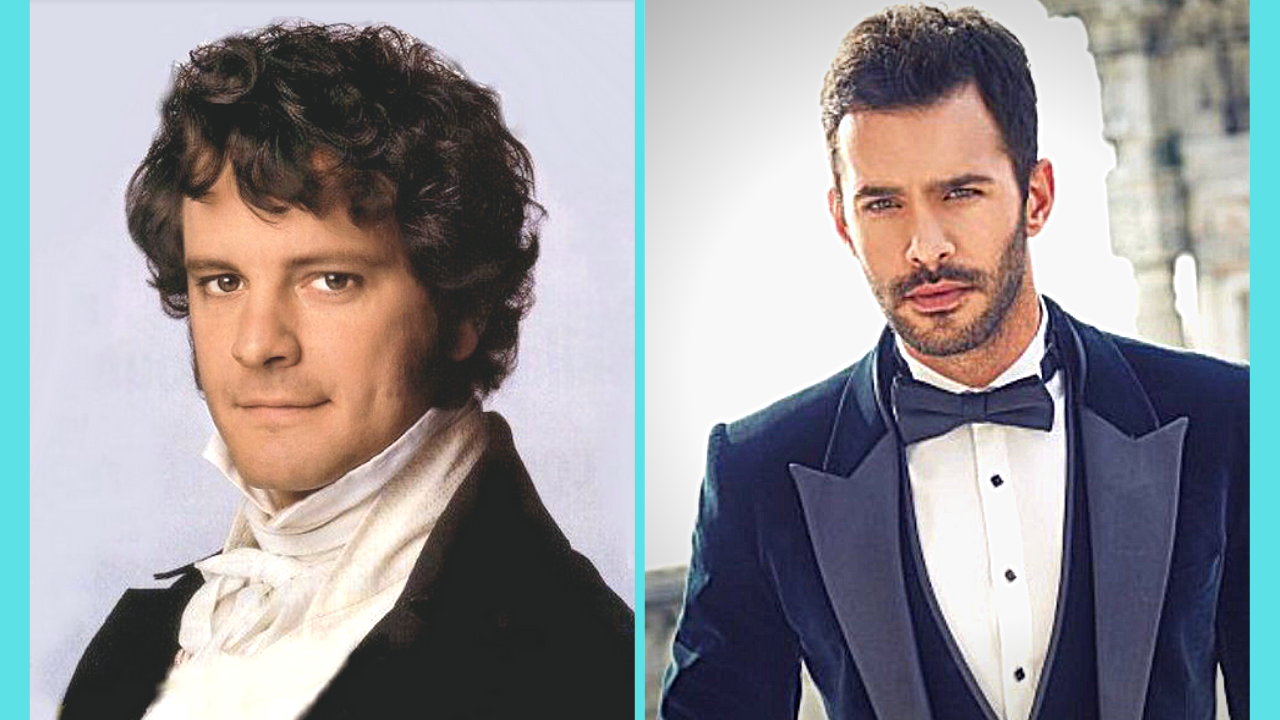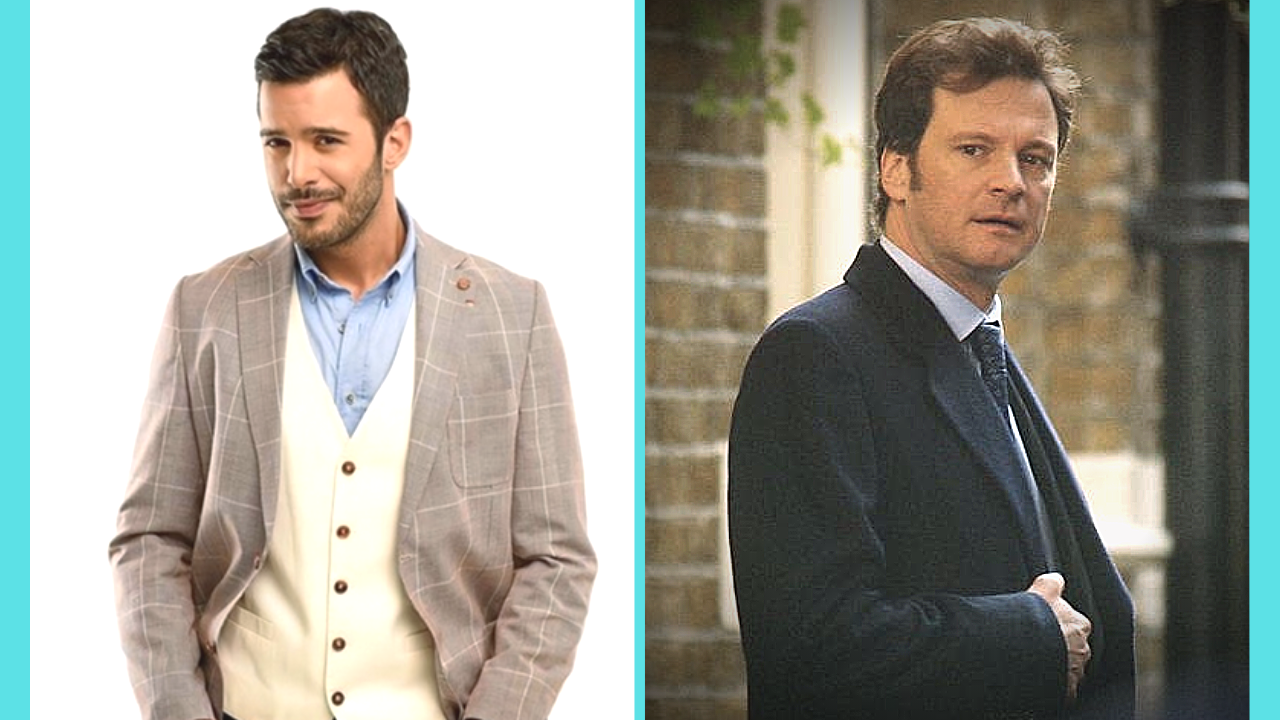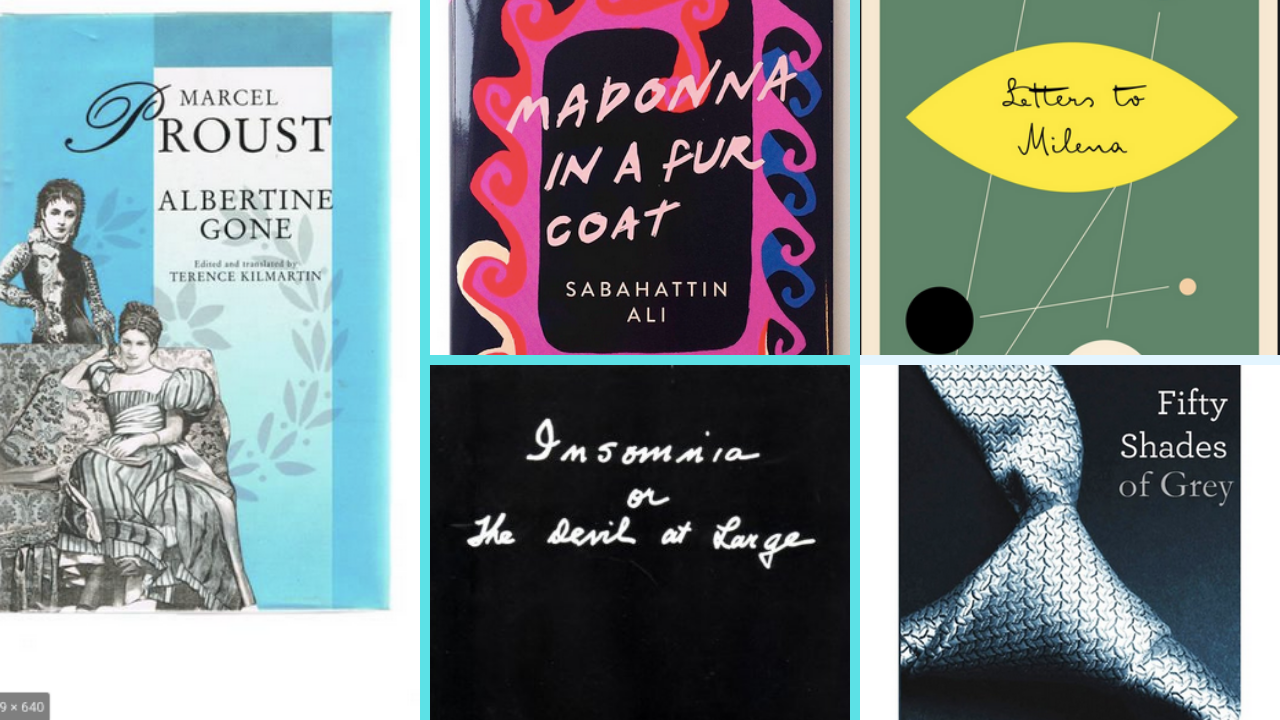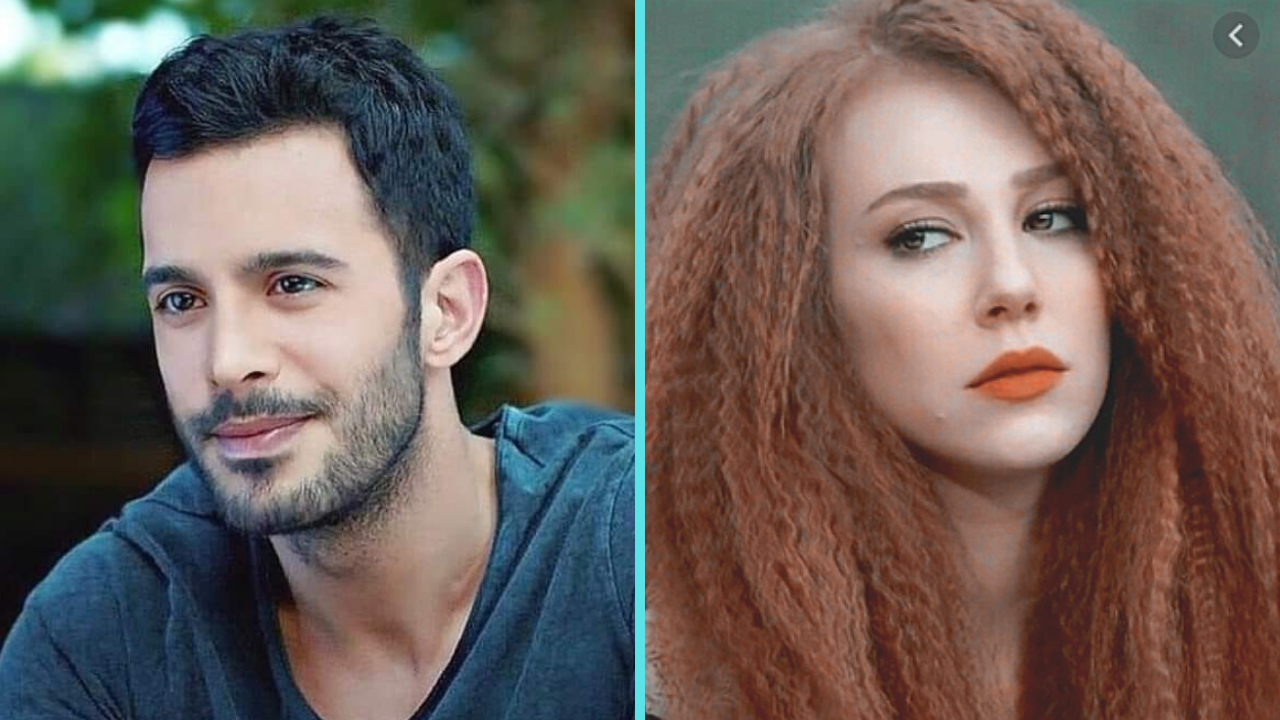by Paola Cesarini
There are cinematic tales that we periodically return to as if in celebration of a cherished ritual or when we need emergency cheering up. "Breakfast at Tiffany's," "Pride and Prejudice," "Bridget Jones's Diary," "When Harry Met Sally," "Jerry Maguire" and a few others belong to this category of perennial favorites. For many fans of the romantic genre, who are familiar with Turkish dizi, Kiralik Aşk (Love for Rent) is also high on the list.
Kiralik Aşk was first released on Turkish television five years ago, precisely on 19 June 2015. Since then, it has permanently occupied a coveted spot among the most viewed Turkish series both at home and around the world. No matter where it is broadcast, ratings for Kiralik Aşk are consistently astronomical, and reviews overwhelmingly positive. Most importantly, old and new fans alike still continue to talk about the show on social media, with recent viewers joining the ranks of established aficionados on a daily basis.
There are several factors behind the surprising global appeal of the Turkish rom-com. Kiralik Aşk, however, is truly in a class of its own. On the eve of the series' fifth anniversary, this article will explain why this is the case and, in turn, account for the show's longevity. To do so, however, it will have to include a few spoilers. So, please be warned!
One of the most important reasons for Kiralik Aşk's success is Meriç Acemi's smart, erudite, heartfelt, and fast-paced script. While the story's premise is rather typical of the rom-com genre, the gifted screenwriter nevertheless succeeds in crafting a series that is fresh, distinctive, and addictive. Kiralik Aşk narrates the story of Ömer Iplikçi, a rich, gorgeous and successful designer/entrepreneur and Defne Topal, his beautiful, sharp, and naive personal assistant. They fall in love despite their best intentions amidst innumerable obstacles and misunderstandings. Ömer is urban, seasoned, accomplished, and modern. Defne is provincial, inexperienced, far less cultured, and relatively traditional. Their genuine reciprocal fondness, however, is built upon a bizarre deception. Ömer's greedy and meddling aunt Neriman originally hires Defne to "make" Ömer fall in love and marry, so that she can inherit Grandpa Iplikçi's mansion. Defne accepts the peculiar proposal only to save her irresponsible brother from dangerous moneylenders.

Brilliantly alternating humor and drama, the first season of Kiralik Aşk narrates the protracted comedy of errors that ensues from the story's curious premise. Despite a few irritating secondary characters, the plot moves at a quick pace, taking viewers along on an exciting ride up until the shocking season finale's cliffhanger. The second season jumps one year ahead and relates Ömer and Defne's sincere efforts to re-build their relationship on an honest, open, and interference-free basis. Between the two installments, the main characters experience substantive development, so that season two feels almost like a new series. Finally, just when the story starts exhibiting telltale signs of fatigue, Kiralik Aşk delivers one of the most satisfying endings ever seen in Turkish dizi.
Besides the brilliant script, Kiralik Aşk features exceptionally strong, clearly delineated, deeply appealing, and exquisitely multi-layered lead characters. Barış Arduç's unforgettable Ömer Iplikçi is intentionally designed as a Levantine incarnation of the classic romantic hero archetype.

The series' copious references to "Pride and Prejudice" outline Ömer as a modern-day Turkish "Fitzwilliam Darcy." Like Jane Austen's character, he is gorgeous, smart, elegant, successful, and confident. But also dark, silent, solitary, uncompromising, and somewhat aloof. He is always polite but not easily approachable and has difficulty expressing his feelings. Ömer's Turkish heritage and creative talents do however render him relatively more congenial than Austen's austere Victorian hero. Emulating Mr. Darcy, Ömer grows more affable over time as a result of his infatuation with an entirely unsuitable young lady. He too swallows his pride and apologizes to Defne on various occasions during the series. Eventually, he completely abandons his prejudice and runs after his beloved just when all hope for a happy ending seems lost.
Ömer also bears similarity with other fictional characters inspired by Austen's novel, and especially to Helen Fielding's "Mark Darcy" from the novel "Bridget Jones's Diary." Like Mark, Ömer is an updated version of the original "Mr. Darcy", who displays advanced skills in the kitchen, a counterintuitive appreciation for his lover's frequent babbling nonsense, a supportive attitude towards her career, and a considerable benevolence towards her peculiar friends.

Kiralik Aşk's screenwriter brilliantly employs other literary references to reveal Ömer's personality. Early on (ep. 7), she quotes from Sabahattin Ali's novel "Madonna in a Fur Coat" to draw attention to Ömer's difficulty in connecting with others:
"The more dependent on people I become, the more my need to run away from them increases."
The passage lays the groundwork for Ömer's subsequent elation at finding love after an interminable period of loneliness, and his final realization that his life is meaningless without the people he cherishes.
Ömer's predilection for Marcel Proust's novel "Albertine, Gone" (eps. 14 and following) is almost prescient of his deep infatuation with Defne and his subsequent suffering upon her loss. Like Proust's anti-hero Marcel, Ömer has to come to terms with the real reasons why he loves Defne. Thankfully, however, it will not be too late for him to regain her affection.
His appreciation of Franz Kafka's "Letters to Milena" (ep. 38) further exposes Ömer's tormented soul. He is thirsty for love, yet fearful of the vulnerability that derives from it. Like Kafka, Ömer feels at the same time inebriated and intoxicated by the push-pull dynamics of their relationship. It will take some time, however, before he eventually realizes that he is the one doing most of the pushing.
Another book in Ömer's library exemplifies his helplessness in the face of Defne's contradictions. Like the protagonist of Henry Miller's novella "Insomnia", he is in love but unable to trust his beloved. During the incident related to the eviction of Defne's family from their home, he desperately wants to understand and help, even when he knows that she is intentionally keeping secrets from him (ep. 45.) Eventually, Ömer is able to come full circle and understand that Defne's continued deception derived from her fear of losing him. In so doing, he appears to take the following message of Henry Miller's book to heart:
"If you love, you have to believe, and just believe, understand, and forgive."

Finally, there is a hint of Christian Grey's magnetism in Ömer, sans the latter's disturbing proclivities (see E.L. James' novel "Fifty Shades of Grey.") In Kiralik Aşk, the camera often captures Mr. Iplikçi's elegant movements in slow and deliberately seductive motion. Barış Arduç's innate sensuality makes watching Ömer execute simple actions -- such as play sports, walk, draw, take a shower, or get dressed -- a mesmerizing experience. The series also cleverly capitalizes on his voice, whose hypnotic quality goes above and beyond Ömer's educated speech. Even on those rare occasions when he loses his temper or attempts to command Defne's professional choices, Ömer remains conspicuously alluring. Like Christian Grey, however, he eventually learns to let go once he realizes that happiness requires making oneself vulnerable to others, whose actions are ultimately beyond his control.

As if these literary citations were not enough, Kiralik Aşk is also rich with musical and cinematic quotes ranging from Rossini to Schubert, and from Fellini to the Coen brothers.
Thanks to Barış Arduç's exquisite interpretation, Ömer Iplikçi takes shape as a man, who fully embraces the currently evolving standards of masculinity. He is athletic but not beefy. He is elegant but in a fashion that strikes the perfect balance between austere and flamboyant. He is competitive and successful but neither envious nor greedy. He oozes charm from every pore but is not a womanizer. He is decisive but not domineering. He is cultured but not a snob. He is fiercely protective but not insanely possessive. He is very selective but also extremely polite. He is surprisingly affectionate but never needy. He is brutally honest but never disrespectful.
Gifted with a superior intellect, Ömer yearns for female companionship that stimulates his mind as well as his senses. At the same time, he welcomes a partner, who is very different than himself. He is supportive rather than patronizing, even when Defne briefly engages in the same profession. He enjoys hanging out with the boys but adores female companionship. He is proud of the sophisticated Western upbringing received from his mother but is Turkish enough to be able to connect with Serdar and Iso. He is family-oriented but abhors the patriarchy embodied by his grandfather. In short, he fulfills the fantasy of a perfect -- but highly improbable -- combination between a strikingly masculine gentleman and a quasi-feminist artist. Not surprisingly, Ömer manages to seduce not only Defne but also the vast audience of Kiralik Aşk's viewers.

On the surface, Defne and Ömer appear as complete opposites. Confined by her lack of pedigree, education, and resources to a lower class neighborhood and a dead-end job, Defne is passionate, impulsive, independent, and a bit aggressive. However, she is also smart, devoted, humble, generous, beautiful, and almost completely self-effacing. She is a force of nature, whose appeal Ömer initially attempts to resist. Soon, however, he capitulates before her indomitable spirit, inexhaustible joie de vivre, quiet brilliance, genuine optimism, boundless caring nature, and completely involuntary allure.
The reference to Federico Fellini's famous film "8½" offers additional clues about Defne's role in the series (ep. 21). "8½" narrates the struggle involved in the creative process, especially when artists are expected to deliver an original creation on a strict schedule and under intense public scrutiny, while simultaneously having to deal with their own personal relationships. Like Guido, (the "8½" protagonist,) Ömer is an artist frustrated by his responsibilities as an entrepreneur, who seeks an "Ideal Woman" to become his Muse and offer salvation from his lonely existence. That woman is, of course, Defne. Following the latter's wedding confession, however, his idealized version of Defne comes tumbling down and Ömer results completely devastated. He regains his balance in season two, once he finally accepts life, Defne, and the people around him for what they are, rather than for what he thinks they ought to be.
Interpreting all of Defne's complex contradictions, Elçin Sangu delivers a veritable acting tour de force. We first meet our romantic heroine as a hoyden bearing an untamed red curly mane. Next, we witness Neriman's attempts to transform Defne into a meek Barbie doll. Notwithstanding the glamorous skimpy clothes and exaggerated high heels, her real personality keeps popping up unexpectedly in ways that kindle Ömer's interest. In the course of season one, Defne continues to oscillate between these visual extremes. By season two, however, she finds her own distinctive style which -- very much like her personality -- is a delightful balance between quirky and elegant.

Defne serves as both the comical and dramatic focal point of the series. Elçin Sangu's talent as a comedian is remarkable. Always with perfect timing, she can effortlessly play facetious, candid, innocent, clumsy, clueless, witty, ironic, sarcastic, bewildered, conspiratorial, sassy, mischievous or seductive. And then, a moment later, she can become angry, vulnerable, embarrassed, guilt-ridden, frantic, brokenhearted, miserable, or desperate. Only a few actors can display such a wide range.
Since Kiralik Aşk is narrated mostly from Defne's perspective, viewers get to ride along on her wild emotional rollercoaster. We laugh when she laughs. We fall in love when she falls. We cry when she cries. We suffer when she is in pain. And we become furious when she gets angry. While we may cringe every time Defne twists herself into a pretzel to hide her lies, she never becomes unsympathetic in our eyes. And like proud parents, we are very pleased with the strong and accomplished young woman she eventually becomes.
Defne retains several features of the typical dizi female lead, such as beauty, empathy, modesty, simplicity, and utter loyalty to family and friends. At the same time, she is quite progressive for a Turkish rom-com heroine in ways that are clearly reminiscent of another "Pride and Prejudice" character. Indeed, like Elizabeth Bennet, Defne is an intelligent and independent young woman with
"a lively, playful disposition, which delights in anything ridiculous, [...and] a good-natured impertinence that is endearing instead of offensive."
She possesses a solid moral compass and is not afraid to speak her mind or orient her choices according to what feels right, rather than what is convenient.
.png)
Defne also bears comparison with Macide, the remarkable female protagonist of Sabahattin Ali's novel "The Devil Within." While not explicitly quoted in the series, Macide too is an exceptionally gifted young woman from an impoverished background, who is fierce, modern, resilient, and independent thinking. She is also an excellent judge of character, who cannot be easily impressed.
For most of season one, watching Kiralik Aşk is like witnessing a slow-motion train wreck. Even if Defne's lies were theoretically sustainable in the long run, being deceitful towards those she cares for is categorically against her nature. Hence, falling in love with Ömer inevitably triggers Defne's agony, which she can relieve only by confessing the truth. Defne's tormented conscience is beautifully captured by a quote from Ülkü Burhan's poem in episode 22:
"A secret is a prickly ball sitting in your stomach.
It travels around inside a person without stopping.
In trying to get out, its thorns keep pricking and pricking.
If you did what it wanted in order to escape,
it would betray you and leave its thorns in you
while it escaped from your mouth.
Those thorns would continue to hurt you.
However, if you resist it going outside, it kills your hope
and together with the thorns it switches off and dies inside".

One of the most debated questions in Kiralik Aşk is whether Defne is modeled after Albertine. Undoubtedly there are similarities. Like Defne, Marcel Proust's Albertine is an orphan with few resources, who is prone to lying. On the other hand, Defne is a far less ambiguous character than Albertine. Her erratic behavior, which drives Ömer crazy, is neither intended nor motivated by an inconstant attachment. Rather, it is a miserable condition forced upon her by Neriman's blackmail. Moreover, while Ömer's affection for Defne remains steady even after their long separation. Marcel's love for Albertine is always unreliable. As a matter of fact, Marcel recognizes his selfish obsession towards Albertine as "love," only after she is gone.
Although a composite of illustrious literary characters, Defne is a very original Turkish dizi heroine. Many shows in the rom-com genre relate Cinderella-like tales, where the female protagonist's impossible dream-come-true is to get the out-of-her-league Prince Charming. Defne, on the other hand, offers welcome relief from this all-too-common dizi trope. By the end of Kiralik Aşk, in fact, one gets the impression that it is actually Ömer, who earns the biggest prize of all. No matter how rough Defne is at the start of the show, after 69 episodes it becomes crystal clear that -- if not Ömer -- someone else would have soon recognized her as a priceless diamond.
Defne and Ömer are brilliantly conceived and superbly interpreted individual characters. However, taken together, they generate fireworks. Cleverly designed as a continuous source of contradictions, their romance is tender yet passionate. Authentic yet based on pretense. Serene yet unpredictable. Generally humorous and yet at times tragic.
After their first tumultuous meeting, Defne and Ömer's love affair develops at a slow simmer. She brings him a flower, he rescues her from a fall. He gifts her a pair of shoes, she hugs him. She gets a peek at his romantic side on display in his home office, he is stunned by her beauty at the ball. He takes her to see the stars, she shares her childhood tales. He falls ill, she nurses him back to health. She buys him a rare book, he realizes he is in love. For thirteen long episodes, Kiralik Aşk builds an irresistible tension between the protagonists, until they finally confess their feelings.
Then, the rest of the series narrates the many excruciating ups and downs of their whirlwind romance. Two things, however, always remain constant. The way Ömer treasures Defne as if she were the rarest of gems, and Defne's determination never to give up on their love. With time, Ömer and Defne eventually manage to consolidate a healthy, joyful, and considerate relationship whose magical character has the quality of a gentler bygone era.
.png)
Under the veneer of comedy, Kiralik Aşk builds an irresistible physical attraction between the protagonists, whose onscreen chemistry is literally off the charts. Their passion is palpable and joyful, and their love is mature and authentic. Fans enthusiastically root for "DefÖm," because this relationship embodies their loftiest romantic fantasy. Many even claim that Kiralik Aşk generates positive psychological side effects, even after repeated viewings. In short, Kiralik Aşk is a "happy place," where anyone can shake the fog of a bad day or find temporary refuge in times of distress.
To date, less than a handful of dizi has come close to recreating Kiralik Aşk's magic. None, however, has been able to replicate its quality, substance, and depth. The special "sauce" of the series consists first and foremost of a compelling tale involving a carefully designed, elegant, and charismatic romantic hero, and a beautiful, smart and resilient modern heroine. The lead actors' inimitable onscreen chemistry and a great cast performance render the story authentic. Packaged in a distinctive cornucopia of erudite cultural references, beautiful sets and costumes, and an unforgettable soundtrack, the series manages to attract even those who generally dislike the rom-com genre.
This, in essence, is what elevates Kiralik Aşk from a routine summer dizi into an extraordinary and rewarding exploration of love in the XXI century, and renders the series a perennial favorite among hopelessly romantic souls.

@ Article Copyright by Dizilah and Paola Cesarini
All sources for the article have been included as hyperlinks. All pictures and video clips belong to their original owners, where applicable. No copyright infringement intended.
